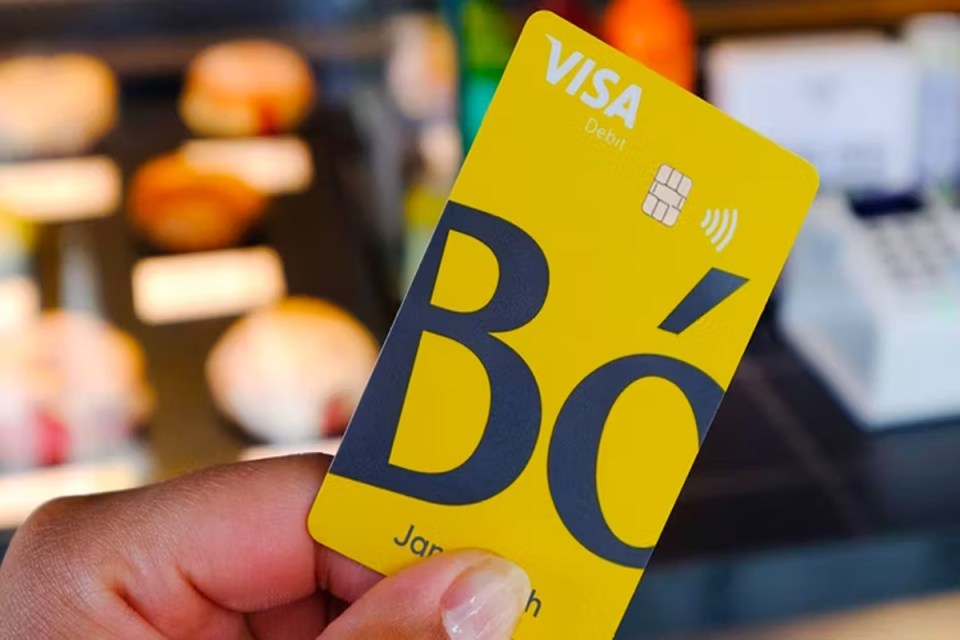Saturday June 8, 2024 9:00 am
Britain’s big banks are entering new areas of the fintech space as they look to keep up with a group of young challengers and grab a piece of the lucrative market.
In the early 2010s, a wave of start-up financial technology companies arrived on the scene, offering new products and slick alternatives to traditional banking.
Since then, they have attracted millions of customers, achieved eye-catching valuations and are becoming increasingly profitable, forcing established companies to rethink their models.
Fintech is growing in banking, payments, insurance, wealth management, digital assets and more – offering traditional retail banks the opportunity to diversify their revenue streams away from interest rate-sensitive products.
Big banks want to participate and have different entry strategies – each with their own risks and benefits.
Software licenses
Bankers are paying close attention to Starling’s software-as-a-service (SaaS) unit, Engine, its first major foray into the space by a UK lender and its route to international expansion.
Engine, which formally became a subsidiary of Starling in February 2022, white-labels its software platform to banks in other countries, for which it earns monthly subscription fees.
Although still in its early stages and having secured its first two clients last year, Engine has already shown enough potential for Starling’s second largest investor to say it wants to take the bank to a valuation of £ 10 billion by signing up another 40 to 50. customers.
Starling executives are also optimistic about Engine’s prospects. The unit’s CEO, Sam Everington, said City AM that Engine had seen “very strong interest”, especially since its first customer – Salt Bank in Romania – went live in April.
“Last month was by far the busiest for visitors to our London office,” he said, highlighting Europe, the Middle East and Southeast Asia as particularly attractive markets.
“Can it be more valuable as a business than the UK regulated bank? Yes, potential.”
Sam Everington, CEO of Engine by Starling
Everington added that Engine’s revenues could eventually surpass those of Starling’s UK bank, although “not for a long time” given the complexity of each project.
“It can deliver significant value. The valuation multipliers of tech companies are very different from those of banks,” he said. “So can it be more valuable as a business than the UK regulated bank? Yes, potential.”
Yet not everyone is so optimistic. “You can certainly understand why Starling needs a different story, but I’m not sure how credible it really is,” said one fintech executive, noting how difficult and risky it is to keep small banks afloat in so many different markets.
In any case, Engine is facing a competitive scene. Cloud banking fintech Thought Machine, which is valued at $2.7 billion by 2022, has signed deals with major players such as Lloyds, Standard Chartered, JPMorgan and Morgan Stanley.
Other rivals include Mambu and 10x Banking. The head of the latter, Antony Jenkins, who was chief executive of Barclays from 2012 to 2015, said the next decade of banking “is all about how you can use technology to meet the needs of your customers, especially in areas such as artificial intelligence”.
“I was always frustrated with the technology I had to work with,” he added. “I often describe banks as technology museums – they have every generation of hardware and software in there.”
Payments and FX
Europe’s largest lender HSBC also offers integrated banking products and last August announced a partnership with California-based payments fintech Tradeshift to develop apps for financial services.
It now competes directly with Wise and Revolut through Zing, an international payments app it launched in January.
These companies often operate as shielded entities. A senior banker at HSBC said this was standard practice when dealing with ‘risky’ entry into new markets.
HSBC hopes the “wise killer,” as some employees called it, will face a bigger challenge than Monese. HSBC took a stake in the loss-making neobank for $35 million (£30.7 million) in 2022, with Monese warning in January that the bank’s future was at stake amid the struggle to secure further funding.
“The incumbent players have not stood still over the past ten years,” says Tom Graham, director of Accenture, which consults with banks.
“They are developing their systems faster and faster to create similar features for their customers – some banks are now even going beyond neobank offerings. Nevertheless, their core technology remains complex and their cost base remains high. While the neobanks, now more stable, have quickly reiterated their proposals.”
Recent fintech failures include Barclays’ payments app PingIt, Santander’s SME-focused Asto and RBS’s digital bank Bó, which was launched in 2019 to challenge Revolut and Monzo but was shut down after just five months.

Built-in financing
In 2022, Natwest took a minority stake in Polish fintech Vodeno to launch Boxed, allowing large corporate customers to offer financial services under their banking license – a model known as banking-as-a-service (BaaS).
With a focus on shopping, including buy-now-pay-later, rivals include Swedish giant Klarna and Frasers Plus, launched last year by Mike Ashley’s retail group.
The UK BaaS market offers an estimated revenue opportunity of around £5.5 billion, according to Boxed. It also found that embedded financing could deliver incremental sales growth of four to seven percent for retailers.
Boxed CEO Andrew Ellis said it would become a “material part” of Natwest’s financial services revenue, with products such as BaaS providing a method of “future-proofing” a bank’s operations.
He added that Natwest had an advantage with “the strongest licensing credentials, a trusted brand and a modern technology platform”, as well as “expertise in risk management and compliance that other players in the market may not be able to offer”.
“We’re starting to see more players enter this space,” Ellis said. “The way banking is distributed is changing… Banks need to embed their products and services into different customer journeys with major corporate brands to ensure they remain relevant.”
Natwest is not the only major bank venturing into BaaS. Emerging markets-focused Standard Chartered launched Nexus in 2021, targeting social media companies and ride-hailing companies.
What noxt?
Graham said that despite “some very successful examples”, SaaS and BaaS propositions have so far “proved difficult to scale”.
“The market for selling to other fintechs has slowed, the costs and timelines for selling to big banks have proven painful, and the embedded financial market has consolidated,” he added. “Despite this, there is still a huge opportunity to anchor financial services.”
Another way to gain market share is for banks to acquire fintechs. Lloyds has become a closely watched player in this regard, buying WervingTech Embark for £390 million in 2021 and protection consultancy Cavendish Online in 2022.
Fintechs suffering from a lack of financing could be an easy target for banks with deep pockets. According to KPMG, investment in the sector in Europe, Asia and the Middle East will be halved by 2023 to the lowest level in seven years.
A person familiar with the matter said fintech investments and reviewing acquisitions remained part of Lloyds’ strategy. The group plans to launch a buy-now-pay-later offering for partner retailers this year that would compete with the likes of Klarna, it is understood.
Still, Jenkins pointed to “execution risks” around volatility in fintech valuations and integration challenges that made investments and strategic partnerships more likely than acquisitions.
“Banks will increasingly have to collaborate with companies like ours,” he added. “We have capabilities that they could build themselves, but we’ve spent eight years and half a billion pounds on this. So why would you try that yourself if you can buy it from us?”
